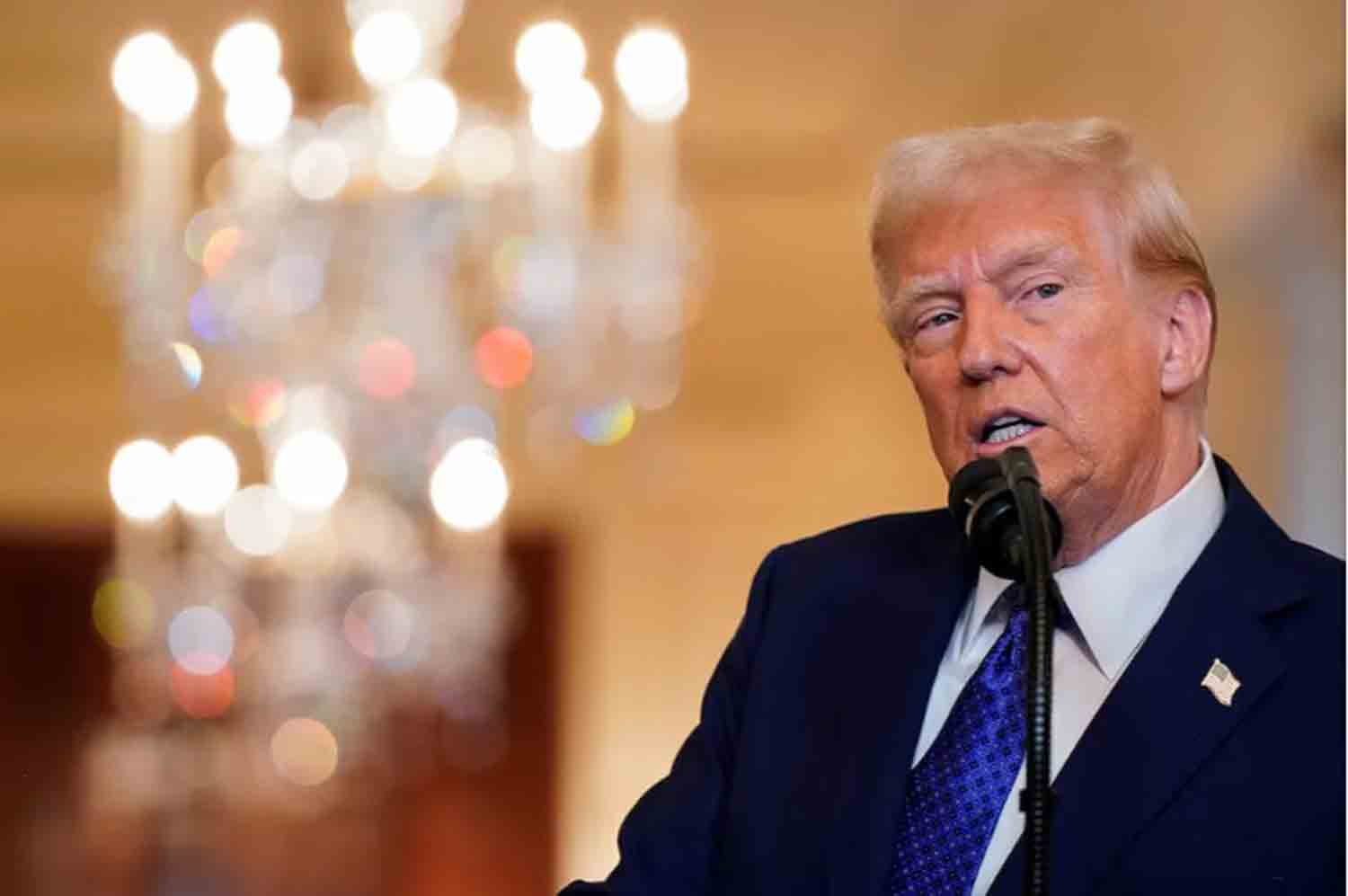Companies, consumers, and farmers throughout North America prepared on Friday for the imminent imposition of 25% tariffs on imports from Canada and Mexico by U.S. President Donald Trump, a move that could significantly affect nearly $1.6 trillion in annual trade.
Trump has set a deadline for Saturday to implement these punitive tariffs, contingent upon his demands for Canada and Mexico to take more decisive action against the influx of illegal immigrants and the dangerous opioid fentanyl, along with its precursor chemicals, entering the U.S.
On Thursday, Trump indicated that he is also contemplating an additional 10% tariff on Chinese imports as a measure against Beijing’s involvement.
Industry representatives were actively seeking clarity on Trump’s plans regarding the tariffs—whether he would enforce the full 25% immediately or announce them with a delay to facilitate negotiations on potential actions from the affected countries.
Even if the tariffs were to be imposed immediately, there would still be a requirement for two to three weeks of public notice before U.S. Customs and Border Protection could start collecting the tariffs, based on previous tariff implementations.
Trump also mentioned on Thursday that he would soon make a decision regarding the application of tariffs on Canadian and Mexican oil imports, suggesting he may be wary of their potential effects on gasoline prices. According to data from the U.S. Census Bureau, crude oil is the largest import from Canada and ranks among the top five imports from Mexico.
Two sources with knowledge of the situation indicated that Trump is likely to utilize the International Emergency Economic Powers Act (IEEPA) as the legal framework for implementing tariffs, citing a national emergency due to fentanyl overdoses that resulted in nearly 75,000 American deaths in 2023, as well as issues related to illegal immigration. This statute, established in 1977 and revised following the 9/11 attacks in 2001, grants the president extensive authority to impose economic sanctions during a crisis.
Among the various trade law options available to Trump, IEEPA would provide the quickest means to enact broad tariffs, as other methods necessitate protracted investigations by the Commerce Department or the U.S. Trade Representative’s office. Trump’s nominees for leadership positions in these agencies, Wall Street CEO Howard Lutnick and trade attorney Jamieson Greer, have yet to receive confirmation from the U.S. Senate. Trump previously invoked IEEPA to support a tariff threat against Mexico in 2019 concerning border issues.
SIGNIFICANT DISRUPTION
The implementation of these tariffs would dismantle a three-decade-long free trade framework that has fostered a highly interconnected North American economy, where auto parts often cross borders multiple times before final assembly. Economists and business leaders have cautioned that such tariffs would lead to substantial price increases for imports, including aluminum and lumber from Canada, as well as fruits, vegetables, beer, electronics from Mexico, and motor vehicles from both nations. According to economists, tariffs are ultimately borne by importing firms, which either transfer the costs to consumers or accept reduced profit margins.
Matthew Holmes, the public policy chief at the Canadian Chamber of Commerce, stated, “President Trump’s tariffs will prioritize America first. The resulting higher prices at gas stations, grocery stores, and online purchases will ripple through the economy, ultimately harming consumers and businesses on both sides of the border. This situation is detrimental for everyone involved.”
Canada has prepared specific targets for immediate tariff retaliation, including duties on orange juice from Florida, which is Trump’s home state, according to a source familiar with the strategy. Canada has a more extensive list of potential targets that could encompass C$150 billion in U.S. imports, but it plans to conduct public consultations before implementing any measures, the source added.
Jonathan Wilkinson, Canada’s Minister of Energy and Natural Resources, indicated that the country’s response would concentrate on products that would impact Americans more significantly than Canadians.
During Trump’s initial term, China focused on U.S. soybeans and other agricultural products, while the European Union targeted well-known American items such as bourbon whiskey and Harley-Davidson motorcycles.
Mexican President Claudia Sheinbaum has indicated that Mexico would also respond, claiming that Trump’s tariffs could result in the loss of 400,000 U.S. jobs and increase prices for American consumers. However, Sheinbaum has recently expressed skepticism about Trump’s commitment to implementing the tariffs, stating, “We honestly don’t believe it will happen.”
Some of this skepticism may be influenced by Trump’s lengthy trade dispute with Colombian President Gustavo Petro, during which he threatened to impose 25% tariffs on Colombia for not permitting U.S. military flights carrying Colombian deportees. The situation was resolved when Petro agreed to accept the flights.
China has adopted a more cautious approach regarding its plans for retaliation. Liu Pengyu, a representative from China’s embassy in Washington, highlighted the importance of cooperation between China and the U.S. in addressing fentanyl trafficking, expressing hope that the U.S. “will not take China’s goodwill for granted.”
An executive from a U.S. trade group, who requested anonymity, noted that recent remarks from Trump suggesting progress on fentanyl and immigration issues imply a strong possibility that tariffs could be announced but ultimately postponed. However, the executive cautioned that Trump may need to substantiate his threats with concrete actions. “If they continue to issue threats without implementation, they risk losing credibility,” the executive remarked.
Discover more from Defence Talks | Defense News Hub, Military Updates, Security Insights
Subscribe to get the latest posts sent to your email.





